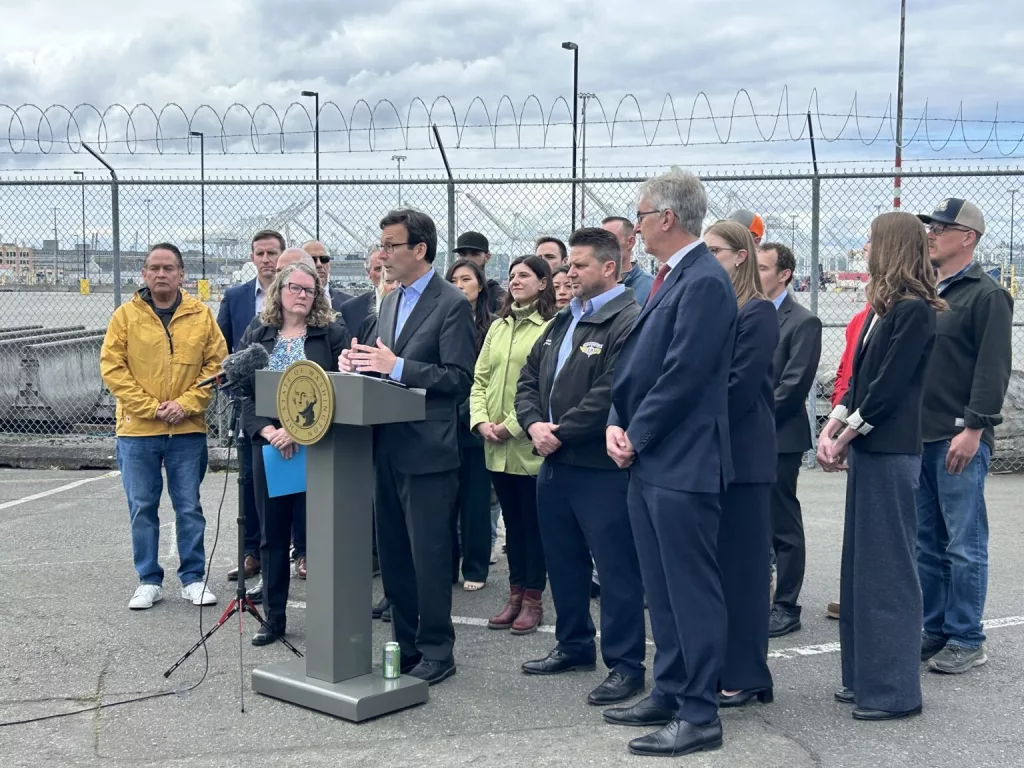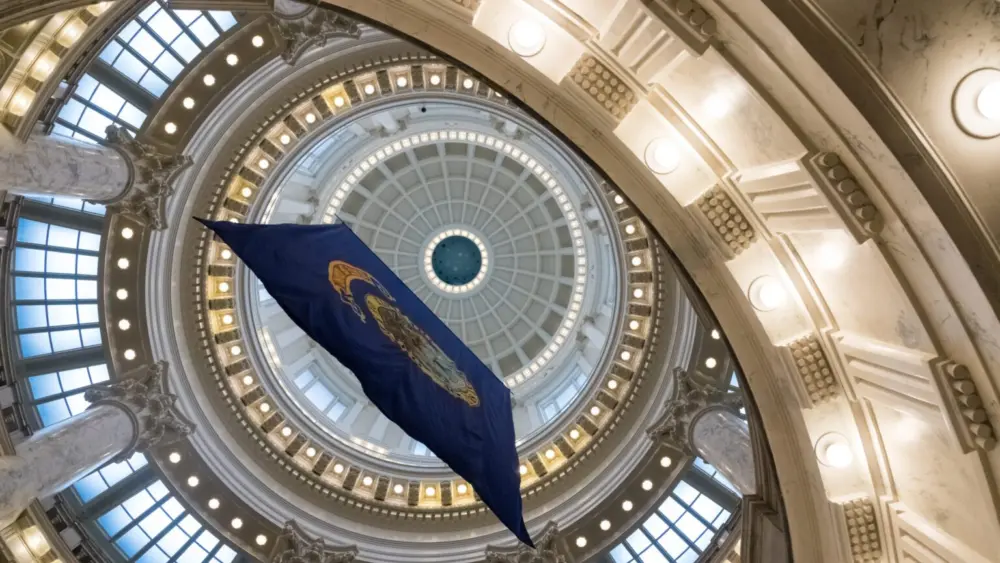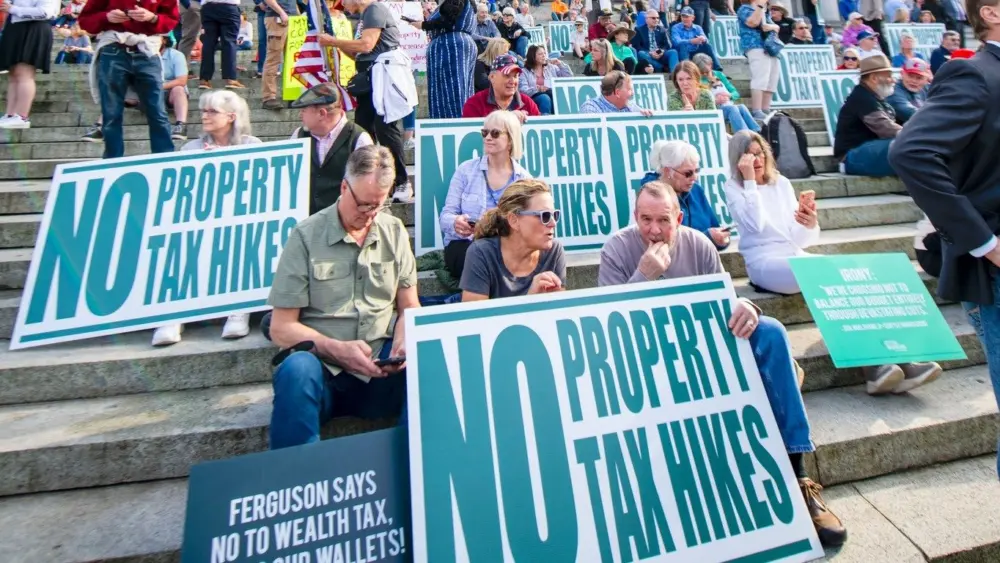Local ports are facing instability as shippers grapple with shifting trade policy.
SEATTLE, WA – The past couple months have been a rollercoaster ride at the Port of Seattle. In response to President Donald Trump’s tariff whipsaw, international cargo imports spiked in March and April as shippers tried to get ahead of anticipated tariffs.
Traffic through the ports of Seattle and Tacoma dropped significantly in recent weeks, but forecasts now predict a rebound. Shippers are trying to rush goods after the United States agreed to lower import taxes on China from 145% to 30% for a 90-day truce, according to Seattle port commissioner Ryan Calkins. Businesses fear what could come after those 90 days.
The president’s on-again, off-again relationship with tariffs “is not the optimal way to operate a port facility,” Calkins said Wednesday. “We really want a steady stream, rather than peaks and valleys.”
The instability means inconsistent work for local longshoremen, truckers and warehouse workers. And it’s left businesses struggling to plan.
“You’re planting seeds now in the spring, for harvest in the fall. And if you don’t know exactly whether you’ll be able to sell your soybeans to China or your corn to Southeast Asia, what does that mean for how you plant now?” Calkins said. “And unfortunately, I think it means that a lot of businesses are choosing to be conservative, and the knock-on impacts of that mean a drag on our economy.”
This uncertainty led Washington leaders, including Gov. Bob Ferguson, the mayors of Seattle and Spokane, state legislators, union officials and business groups, to call on judges to block the president’s tariffs.
Last month, a dozen states filed suit in the U.S. Court of International Trade in New York in a bid to stop the tariffs. The lawsuit, in which Washington is not a plaintiff, argues Trump has circumvented the congressional power to set trade policy outlined in the U.S. Constitution in setting tariffs.
The White House has said persistent trade deficits necessitated the tariffs.
The states argued their case in court Wednesday. The day before, the Washington officials tried to show the three judges overseeing the case the harms Trump’s tariffs have wrought on the state.
Washington is the ninth-largest exporter in the country, according to the state’s brief filed by pro-bono attorneys from the Seattle law firm Corr Cronin. Last year, Washington exported $57.8 billion in goods, making up over 7% of the state’s gross domestic product. Retaliatory tariffs other countries have instituted in response to Trump’s actions hurt the competitiveness of Washington’s products and threatens trade relationships, officials say.
The three countries Trump has singled out — China, Canada and Mexico — account for nearly half of Washington’s imports.
At a press conference Wednesday at the Port of Seattle, Ferguson used the example of North Cascades Builders Supply to emphasize how tariffs are impacting Washington businesses. The Okanogan County-based company imports windows from Canada, but uncertainty from tariffs has cost the business $250,000 in lost projects, the governor said.
“These reckless, erratic and illegal tariffs have thrown the global economy into chaos,” Ferguson said. “American working people and consumers, including Washingtonians, are paying the price.”
Ferguson’s comments came the day after he signed billions of dollars in new and increased taxes, including on businesses, to address a major budget shortfall.
Washington companies last year paid $2 billion in tariffs on imports. Trump’s tariffs could cost 10 times that, according to the state’s amicus brief.
Ferguson said “history will judge Congress” for its inaction to stop what he sees as the president’s abuse of power.
“I’m a governor, not a member of Congress, thank God,” he said.
Vehicle purchases are one area where consumers will see rising prices due to tariffs, even if cars are manufactured domestically, a national policy expert told a state panel Wednesday.
“All vehicles are going to get more expensive, regardless of where it is finally assembled,” said Nick Nigro, founder of Atlas Public Policy, in a presentation to the Electric Vehicle Coordinating Council. Panel members come from 10 state agencies leading the state’s efforts to transition to electric vehicles.
U.S. Sen. Maria Cantwell, a Democrat from Washington, has filed bipartisan legislation looking to flex the legislative branch’s muscles on tariffs. The bill would require the president to notify Congress of the imposition or increase in a tariff within 48 hours. The notice must explain the rationale and analyze potential impacts to the country’s businesses and consumers.
Within 60 days, Congress would have to pass a joint resolution approving the new tariff, or it would expire. Congress could also end tariffs at any time via resolution.
The proposal, known as the Trade Review Act of 2025, has very little chance of success in the Republican-controlled Congress.
Reporter Jerry Cornfield contributed to this report.
Washington State Standard is part of States Newsroom, a nonprofit news network supported by grants and a coalition of donors as a 501c(3) public charity. Washington State Standard maintains editorial independence. Contact Editor Bill Lucia for questions: info@washingtonstatestandard.com.





